Honda HR-V: Danger/Warning/Caution Label Locations (KA/KC Models), Emergency Towing
Honda HR-V (2015-2021) Service Manual / General Information / Information / Danger/Warning/Caution Label Locations (KA/KC Models), Emergency Towing
DANGER/WARNING/CAUTION LABEL LOCATIONS (KA/KC MODELS)
Front Passenger's Compartment:
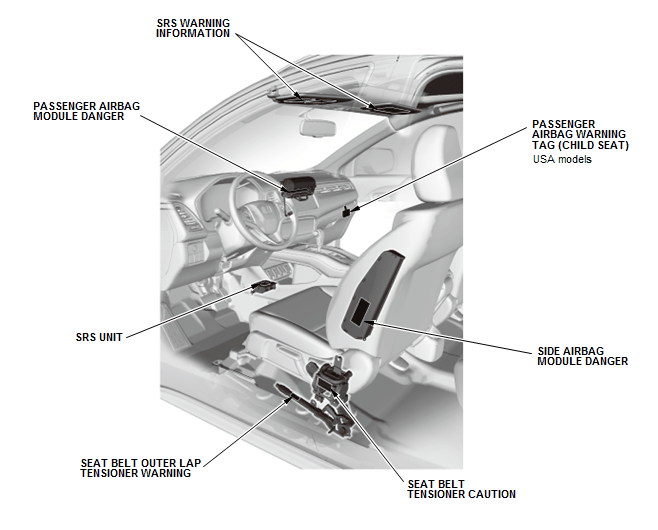
Steering Wheel:
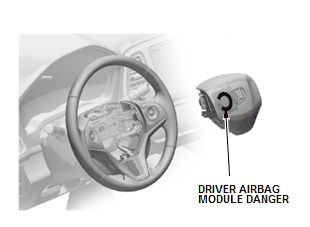
Driver's Compartment:
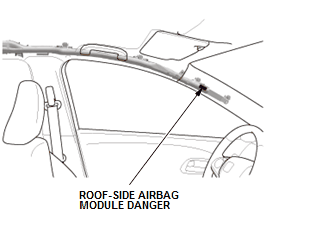
Engine Compartment:
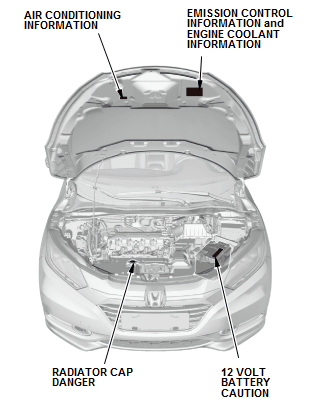
Driver's Doorjamb:
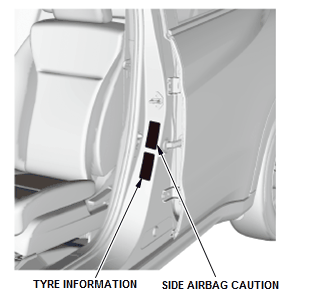
Passenger's Doorjamb:
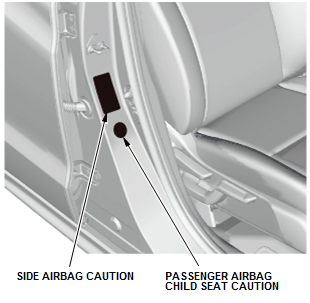
EMERGENCY TOWING
If the vehicle needs to be towed, call a professional towing service.

- Improper towing preparation will damage the transmission. Follow the below procedure exactly. If you cannot shift the transmission or start the engine, the vehicle must be transported on a flat-bed tow truck.
- Trying to lift or tow the vehicle by the bumpers will cause serious damage. The bumpers are not designed to support the vehicle's weight.
- It is best to tow the vehicle no farther than 80 km (50 miles), and keep the vehicle speed below 55 km/h (35 mph). (Except loading on a flat-bed tow truck)
Emergency Towing There are three popular methods of towing a vehicle.

Flat-bed Tow Truck Equipment - The operator loads the vehicle on the back of a flat-bed tow truck. This is the best way of transporting the vehicle.
Towing Hook/Tie Down Hook Slot Locations
- The detachable towing hook is for towing very short distances, such as freeing the vehicle. To install the detachable towing hook, remove the cover on the front bumper and tighten the hook securely by hand.
- The towing hook can be used with a winch to pull the vehicle onto the flat-bed tow truck, and the tie down hook slots can be used to secure the vehicle to the flat-bed tow truck.
- Be sure to reinstall the rubber plugs after use.

- To avoid damage to the vehicle, use the towing hook for straight flat ground towing only. Do not tow on an angle.
- Do not use the detachable towing hook as a tie down for securing the vehicle on a flat-bed tow truck. To secure the vehicle on a flat-bed tow truck, use the tie down hook slots provided.
Front towing hook:
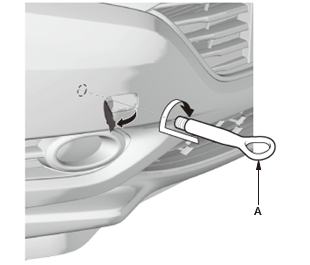
- Detachable front towing hook
Rear towing hook:
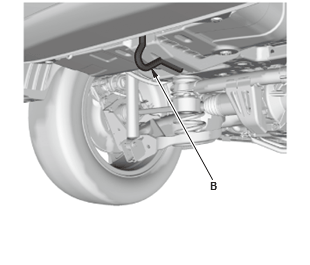
- Rear towing hook
Tie down hook slots:
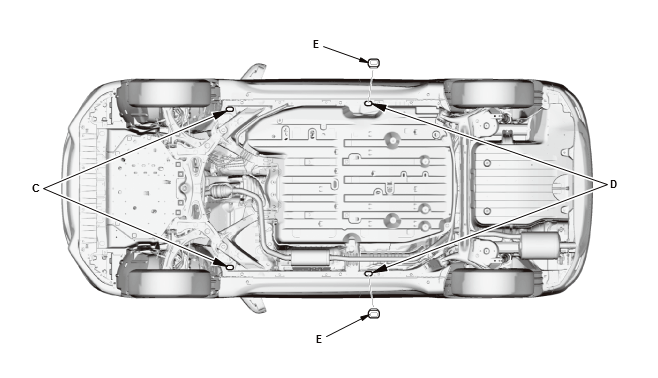
- Front tie down hook slots
- Rear tie down hook slots
- Rubber plugs
READ NEXT:
 Lift and Support Points
Lift and Support Points
NOTE: If you are going to remove heavy components such as suspension
or the fuel tank from the rear of the vehicle, first support the front of the
vehicle with tall safety stands. When
substantial w
 Parts Marking (KA/KC Models)
Parts Marking (KA/KC Models)
To deter vehicle theft, certain major components are marked with the vehicle
identification number (VIN). Original parts have self-adhesive labels.
Replacement body parts have generic self-adhesive
 A Few Words About Safety
A Few Words About Safety
Service Information
The service and repair information contained in this manual is intended for
use by qualified, professional technicians. Attempting service or repairs
without the proper training,
SEE MORE:
 Both FCW And LDW Indicators (Amber) Come ON At The Same Time
(Temperature Too Hot) (Forward Collision Warning (FCW)
Both FCW And LDW Indicators (Amber) Come ON At The Same Time
(Temperature Too Hot) (Forward Collision Warning (FCW)
Refer to: How to Troubleshoot the Forward Collision Warning (FCW) or How to
Troubleshoot the Lane
Departure Warning (LDW)
BOTH FCW AND LDW INDICATORS (AMBER) DOES NOT GO OFF (FORWARD COLLISION
WARNING (FCW)
Refer to: Forward Collision Warning (FCW) Symptom Troubleshooting - FCW
indicator (amber) d
 Front Door Glass Removal and Installation
Front Door Glass Removal and Installation
Removal & Installation
1. Front Door Panel - Remove
2. Front Door Plastic Cover - Remove
Remove the plug caps (A)
Disconnect the connector (B)
Remove the harness clips (C)
Remove the front door plastic cover (D) as needed.
NOTE : If the plastic
cover is damaged or torn, replace it with a
© 2019-2026 Copyright www.hohrv2.com

